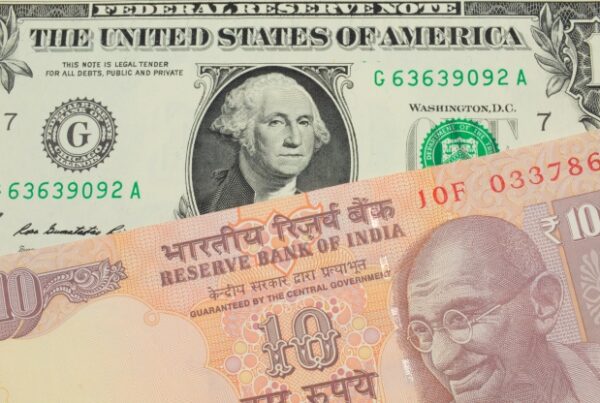
A new regulation makes some blue-chip swaps, used to move trapped cash out of the country, less attractive.
In the run-up to Argentina’s Oct. 22 general elections, the government body that regulates markets issued an official bulletin that has effectively limited outflows of Argentine pesos (ARS). In recent NeuGroup meetings, corporates and regional experts said the regulation increased the perceived legal risk of blue-chip swaps, a type of international asset trade where a multinational in Argentina typically uses local currency to buy sovereign bonds or shares of local companies with US listings and sells the securities offshore for dollars, often through a brokerage.
- Blue-chip swaps offer corporates an option in FX markets in countries with tight controls on cash outflows—albeit at a much less favorable rate: Today, $1 translates to about 350 Argentine pesos (ARS) in official channels; the volatile, unofficial blue-chip rate hovers around 1,000 ARS. Some corporates are willing to accept the rate because these transactions are one of the few ways to get trapped cash out of Argentina.
- The new regulation requires five days of notice for any transaction above 200 million ARS—roughly $200,000 at the blue-chip rate. In a recent session of NeuGroup for Latin America Treasury, Alejandro Haro, CEO of Comafi Bursátil, the brokerage arm of Banco Comafi, said “this is a major change.”
Chilling effects. Mr. Haro, as well as a NeuGroup member who has executed a blue-chip swap in the last week, said a knock-on effect of the regulation is that demand has steeply declined in the blue-chip market. That has essentially imposed a soft cap of about $3 million per swap transaction, down from around $15 million before the regulation.
- He added that earlier this year the blue-chip swap market could see up to $80 million total per day, compared to $30 million now.
- At a recent NeuGroup meeting, one treasury manager said he had plans to execute a blue-chip swap worth multiple millions in USD the week before the election, with an eye on another, larger transaction later. The new requirement to submit notice, in addition to increased regulatory attention, caused the treasury team to put an indefinite hold on the plan.
- This is not the first step Argentina has taken to limit the use of the blue-chip mechanism. Earlier this year, the central bank issued a new regulation on blue-chip swaps: Before a party can execute the transaction, it must prove it has not tapped the country’s official FX market for 180 days; after the swap, it can’t access that market for another 180 days.
Tangled legal knot. Gabriel Gomez-Giglio, the chair of Baker McKenzie’s Latin American banking and finance practice, noted in a recent interview that the new regulations, in concert with a number of other factors, including uncertainty around the Nov. 19 election run-off and ongoing price volatility in the country have “basically been a deterrent to conduct transactions.”
- “Our clients are holding onto many more pesos,” he said, despite noticing rising demand from corporates to get cash out of the country. “It’s a vicious cycle.”
- Mr. Gomez-Giglio, as well as Mr. Haro, noted that the regulation is unclear on how the five-day notice will be implemented, with no clarity on whether the day that notice is issued counts as one of the five days.
Moving forward. There are many parties simply executing daily trades up to the legal limit that don’t require five days of notice, about $200,000 USD—but it’s not ideal, as the blue-chip rate fluctuates often, according to Mr. Haro.
- The member who canceled plans for blue-chip swap transactions is looking for alternate avenues for trapped pesos. “We have been in a holding pattern, investing our excess cash in a money market fund that holds deposit balances,” he said. “This provides some protection.”
- He’s also looking into dollar-linked bonds, as are some of Mr. Haro’s clients. Others are looking into hard-dollar bonds, which are dollar-denominated and issued in Argentina. Parties purchasing these must use the blue-chip rate—but because this does not qualify as a blue-chip swap, it does not require five days of notice or the 180-day waiting period.
- Because of the perceived legal risk of transacting amid increased scrutiny from regulators, Mr. Haro and Mr. Gomez-Giglio each said they have noticed many corporates adopting a wait-and-see approach until after the presidential run-off election later this month. Sergio Massa, the nation’s current minister of economy, who received the most votes in the general election, will face off with libertarian economist Javier Milei, who seeks an overhaul of the economic system, leading to a “dollarization” of Argentina’s troubled economy.


